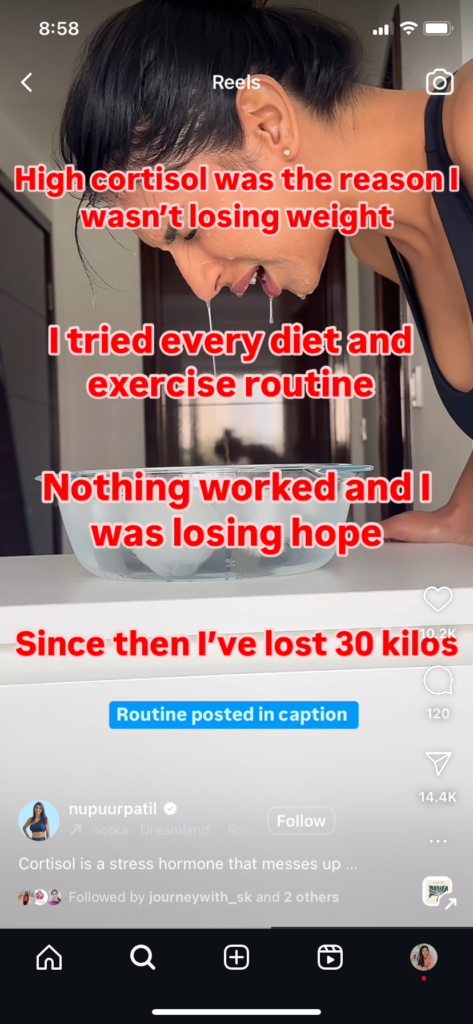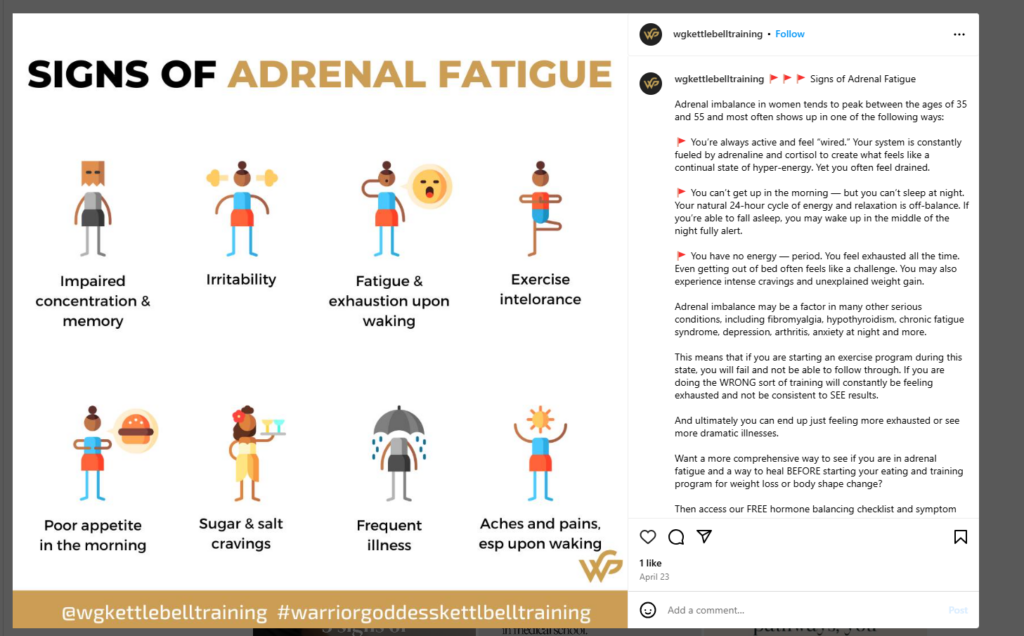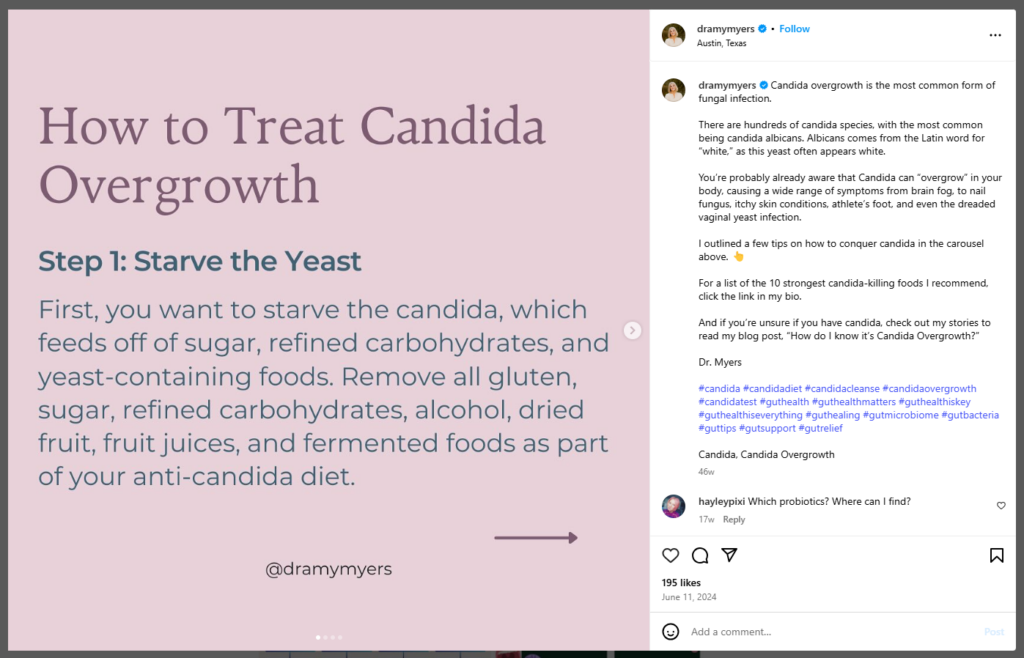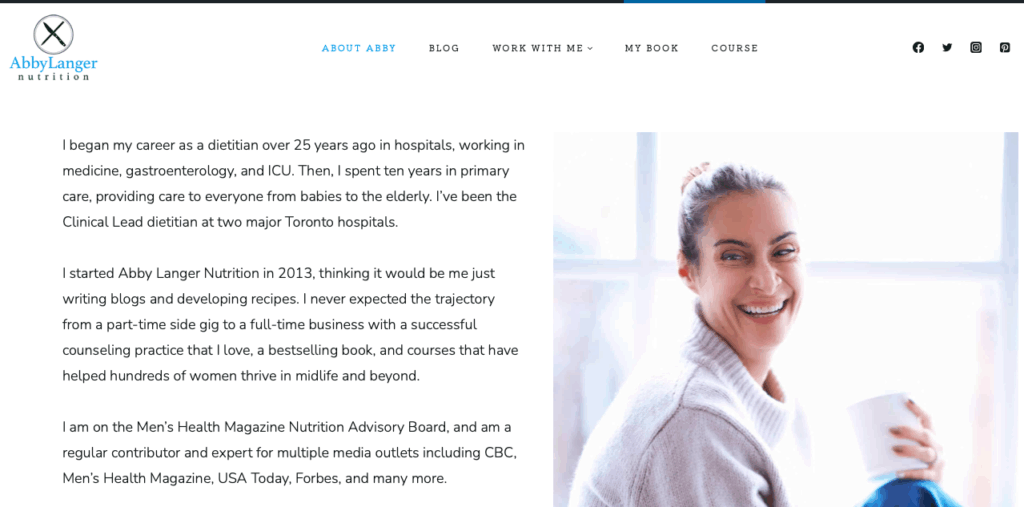The Increase of False Information in the Age of Wellness
From TikTok videos to Instagram infographics, health and wellness and health material is all over. While some developers are qualified wellness professionals, many are not– and even well-meaning influencers commonly spread misinformation. Conditions like parasites, adrenal fatigue, Yeast overgrowth, and chronically raised cortisol from coffee often appear in social media sites feeds.


The issue? These problems are either misunderstood, extremely rare, or not sustained by scientific research in all.
The allure is easy to understand: unclear signs and symptoms like fatigue, mind haze, and bloating can make anyone worry. It’s appealing to latch onto a diagnosis that seems to describe everything, yet misdiagnosis, unneeded therapies, and anxiousness can arise from listening to and following unvetted guidance.
Let’s unpack the facts behind 4 health and wellness problems that are much more internet-famous than clinically grounded.
Parasitical Infections: Rare, but possible
The Internet Story:
Social media site posts typically caution of “quiet parasites” creating fatigue, skin issues, and bloating, even in individuals who have not traveled worldwide. “Parasite cleans,” full of herbs and supplements, are touted as vital detoxification tools.
Fact Check:
In truth, parasitical infections in countries like Canada, the U.S., and most of Europe are rare outside of details contexts (e.g., bad hygiene, particular day cares, or worldwide traveling). A Canadian study found that 29 % of tourists to creating areas got parasitical infections, yet this does not show the average population.
Signs of genuine parasitic infections differ however typically consist of looseness of the bowels, malabsorption, weight reduction, anemia, not eczema and brain haze.
The symptoms are intense and usually severe– not refined tiredness or bloating. Identifying bloodsuckers needs stool tests or serology, not uncertainty or online quizzes. Therapies are targeted and evidence-based, not organic routines from an influencer’s shop.
Adrenal Exhaustion: A Diagnostic Mirage
The Web Narrative:
“Do you feel tired constantly, also after 8 hours of rest? You could have adrenal tiredness.” Social network posts present adrenal tiredness as an epidemic of modern life triggered by tension, consuming excessive sugar, or sleep starvation.


Reality Inspect:
There is no recognized medical problem called adrenal fatigue. A 2016 methodical testimonial wrapped up that “adrenal tiredness does not exist,” with no clinical proof sustaining the theory of underperforming adrenal glands due to anxiety.
Confusingly, adrenal exhaustion is commonly merged with reputable clinical problems like Addison’s disease or additional adrenal deficiency, which are major and call for clinical therapy. These are diagnosed with blood tests and involve hazardously low cortisol degrees– not unclear signs and symptoms that match exhaustion or anxiety.
The threat of the adrenal tiredness misconception is twofold:
Individuals might postpone getting appropriate diagnosis genuine concerns like thyroid illness, anemia, or clinical depression.
They may spend hundreds of bucks on unneeded supplements or “adrenal support” herbs without tested benefit.
Yeast Infection Overgrowth: Common Fungi, Uncommon Problem
The Net Narrative:
“You most likely have Candida albicans overgrowth and don’t understand it.” Influencers claim it triggers every little thing from mind haze to sugar yearnings to acne. “Anti-Candida” diets and antifungal supplements are preferred on health systems.


Reality Inspect:
Candida is a yeast that resides on your skin and in your gut. Overgrowth can occur– however virtually specifically in immunocompromised individuals, people on long-lasting antibiotics, or those with diabetes mellitus. Usual types of overgrowth consist of:
Oral yeast infection (white patches in the mouth)
Vaginal candidiasis (itching, discharge)
Intrusive candidiasis (unusual and often seen in ICU clients)
Research studies similar to this one on psoriasis individuals reveal Yeast infection colonization in certain populaces ( PMID: 39720714 , yet no evidence sustains the concept of a prevalent epidemic of “systemic candidiasis” in healthy and balanced individuals.
Anti-Candida diet plans are excessively limiting and can lead to disordered eating. Worse, they might sidetrack from finding the genuine root cause of signs and symptoms like tiredness or bloating (e.g., IBS, tension, thyroid disorder).
Coffee and Cortisol: The Stress And Anxiety Hormonal Agent Misconception
The Internet Narrative:
“Coffee spikes your cortisol and keeps you in fight-or-flight mode throughout the day.” Some wellness figures declare coffee is a root cause of hormonal agent imbalance, weight gain, and burnout– specifically in ladies.
Truth Check:
Caffeine can create a short-lived surge in cortisol, specifically in people that are caffeine-naïve. But in habitual coffee enthusiasts, the body promptly adjusts. A 2024 randomized trial found that high levels of caffeine ingestion did not dramatically modify day-to-day cortisol degrees in regular customers.
Earlier research from 2008 revealed that while an 800 mg dosage of high levels of caffeine might boost cortisol by regarding 52 %, these effects were transient and went back to standard. The advised high levels of caffeine intake should not go beyond 400 mg each day, which has to do with the matching of 3 cups of coffee. Modest coffee consumption (1– 3 cups/day) may even be advantageous for metabolic and brain health and wellness.


Genuine Cortisol Problems
If somebody absolutely has chronic high cortisol, it’s not from Starbucks– it’s from a disease like Cushing’s syndrome. This rare problem (2 2 per 100, 000 people;-RRB- is triggered by growths (pituitary or adrenal), not diet regimen.
Signs consist of:
Quick weight gain (especially in the face/abdomen)
Thin skin, easy discoloration
Muscle mass weak point
High blood pressure and blood glucose
Cushing’s syndrome requires endocrine evaluation, imaging, and often surgery– not giving up your early morning latte.
Why Misinformation Persists– and why it threatens
Social media algorithms award vibrant claims, personal stories, and visually enticing web content– not subtlety, evidence, or context. This makes systems productive ground for pseudoscience. One of the most viral health and wellness content has a tendency to:
Deal straightforward descriptions for intricate problems
Validate people’s signs with simple answers
Sell an item as the “option”
This develops a vicious cycle: individuals feel seen, buy a supplement, and then become part of the testimonial resemble chamber– also if the underlying cause of their signs and symptoms was never ever investigated appropriately.
Possible Repercussions:
Delayed diagnosis of real medical problems
Lost money on unproven therapies
Worsening anxiousness about typical bodily features
Disordered consuming driven by limiting “healing” diet plans
Just How to Assume Critically About Wellness Web Content
Here are a few questions to ask on your own when you encounter health cases online:
Who is making the case? Are they a qualified doctor?
Is it based on peer-reviewed research study? Seek PubMed citations, not blog sites.
Is the condition acknowledged by major medical bodies? Examine CDC, THAT, or national endocrinology societies.
Is the treatment supported by professional proof? Testimonies are not scientific research.
Does it appear too excellent to be real? If indeed, it most likely is.


Evidence-based medication is not constantly fancy, but it’s credible. If you’re experiencing persistent symptoms, the very best primary step is to see your doctor.
Last Thoughts
Feeling exhausted, clouded, or bloated doesn’t indicate you have a bloodsucker, adrenal tiredness, systemic Yeast infection, or coffee-induced cortisol overload. These narratives, while compelling, are typically improved shaky foundations. While it is necessary to verify people’s signs and symptoms, the most effective support comes from clearness, not confusion.
Trust science. Inquiry oversimplified responses. And never ever take too lightly the power of a good night’s sleep, balanced dishes, and trusted medical care.
While you’re here …
I have actually recently decided to take even more clients in my personal practice! If you’ve been intending to work with a professional to reach your nourishment and health goals, I’m below to assist.
Obtain 10 % off any of my counselling packages (3 or 5 sessions) with the code BUILD 10 A lot more details and reservation link here.